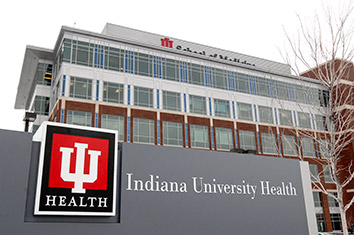Subscriber Benefit
As a subscriber you can listen to articles at work, in the car, or while you work out. Subscribe NowIf you have recovered from COVID-19, the state’s largest health system wants your help.
Indiana University Health is asking patients who have beaten the coronavirus to donate plasma, which may contain antibodies that can fight and control the virus.
That plasma can be transfused to critically ill patients who are struggling with the disease.
The process is called convalescent plasma infusion.
“At this point there are no vaccinations or proven medications to treat COVID-19,” said Dr. Nicolas Barros, a transplant infectious diseases specialist at IU Health, in a statement. “The use of convalescent plasma is an investigational new treatment that could prove successful in the management of the disease.”
Donors must be able to prove they had a COVID-19 diagnosis with a positive, documented laboratory test. Donors must also be symptom-free for 28 days. IU Health is working with blood centers to identify eligible plasma donors and facilitate the donations.
Doctors and researchers don’t know that infusing plasma from a recovered COVID-19 patient will help a sick one. But similar treatments have been used successfully against polio, measles, mumps and flu, and the Food and Drug Administration has approved the treatment as an investigational new drug in the fight against the coronavirus.
The therapy is based on a medical concept called “passive immunity.”
People who recover from an infection develop antibodies that circulate in the blood and can neutralize the pathogen. Infusions of plasma—the clear liquid that remains when blood cells are removed—may increase people’s disease-fighting response to the virus, giving their immune systems an important boost. The approach
“IU Health is uniquely positioned to leverage this investigative treatment thanks to our existing living donor program and close partnership with IU School of Medicine,” said Dr. Jonathan Gottlieb, executive vice president and chief medical officer at IU Health. “Not only is it a potential way to develop effective treatments for this virus, it’s a gift from one donor that could impact multiple lives.”
The Washington Post contributed to this story.
Please enable JavaScript to view this content.


Well IUHealth, maybe if you didn’t refuse everyone the COVID test, even those who just need a dr order to get a test somewhere else, we might be able to determine if we have had the virus, as well as be willing to provide plasma.